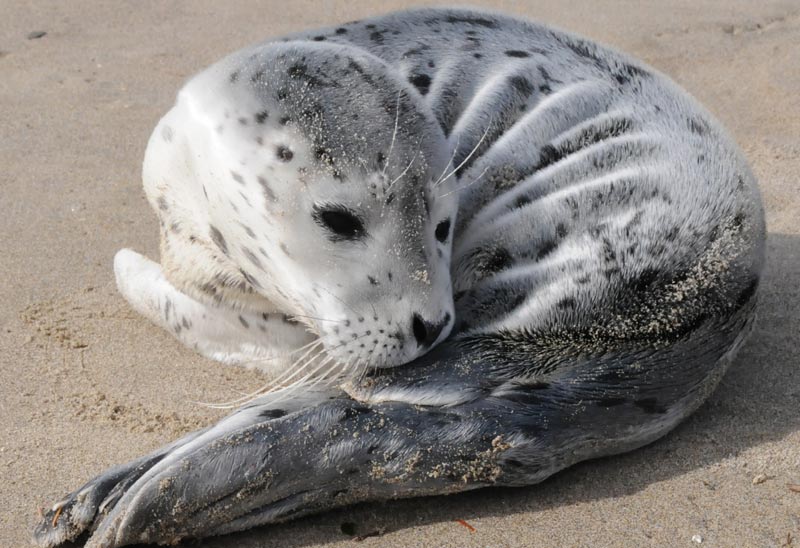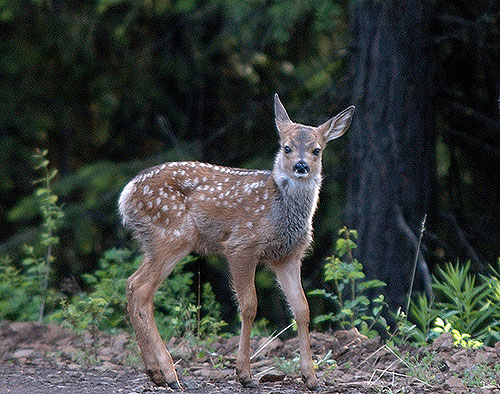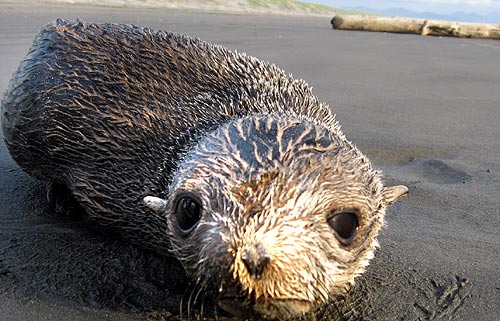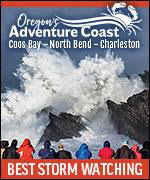Don't Kidnap Wildlife, Say Oregon and Coastal Officials
Published 06/01/2020 at 4:54 AM PDT
By Oregon Coast Beach Connection staff

Includes exclusive listings; some specials in winter
In Cannon Beach:
Includes rentals not listed anywhere else
In Manzanita, Wheeler, Rockaway Beach:
Some specials for winter
In Pacific City, Oceanside:
Some specials for winter
In Lincoln City:
Some specials for winter
In Depoe Bay, Gleneden Beach:
Some specials for winter
In Newport:
Look for some specials
In Waldport
Some specials for winter
In Yachats, Florence
Some specials for winter
(Oregon Coast) – The great outdoors are calling all over the state, especially as early summer begins and the tourism industry slowly starts up again. However, this time of year is concerning to Oregon wildlife officials on any given year. The state and its visitors are getting outside just in time to encounter newborn fawns, elk and other kinds of wildlife, and some of that even includes people’s backyards. (Photo above courtesy Seaside Aquarium)
Chances are, say officials around Oregon and the coast, that you’ll encounter a newborn deer fawn that is alone. Or, along the Oregon coast you couldl bump into a baby seal lounging on the beach by itself.
It sounds stupid, but unfortunately it needs to be said: don’t kidnap young wildlife.
Officials at Oregon Department of Fish and Wildlife (ODFW) put out the notice this week, which is not only relevant to the Oregon coast but just about inland forests and wildlife areas.
“Please don’t assume any young animal is orphaned just because it’s alone - and don’t pick it up,” ODFW said in a release. “It’s natural for mother animals to leave their young alone for extended periods of time while they go off to feed. The mother will return when it’s safe to do so (when people, pets or predators aren’t around).”
ODFW said around this time every year its offices get flooded with calls from people who have picked up a deer fawn, elk calf, fledgling bird learning to fly, or other young animal they assumed was orphaned because it was alone. Various licensed wildlife rehabilitators also get the calls. While they are licensed and trained to deal with such matters, these are not truly orphaned or injured wildlife. The plan is always to return the actual cases to the wild, but kidnapped wildlife are essentially doomed to never come back home.
ODFW said it is especially important this year to not deluge facilities with unneeded cases as the coronavirus had led to more limited capacity.
“Animals taken away from their natural environment miss the chance to learn important survival skills from their parents like where to feed, what to eat, how to behave as part of a group and how to escape from predators,” ODFW said. “Usually this leads to a shortened life span for the animal - or a life in captivity.”
Seaside Aquarium has reported dealing with such incidents in the past with baby seals on the Oregon coast. One situation involved a visitor actually bringing a seal into the bathtub at their lodging, which resulted in an unpleasant rescue situation.
ODFW said because of the damage it can do, removing or capturing an animal from the wild is a violation of state law (ORS 497.308 – No person shall remove from its natural habitat or acquire and hold in captivity any live wildlife in violation of the wildlife laws.)
Last year, the agency reports, a woman in Union County found a red fox as a pup and took it in. Wildlife managers learned of the incident, a warrant was served and the fox was turned over. The woman was criminally cited for Unlawful Take/Hold Wildlife: Red Fox, a class A Misdemeanor with a maximum penalty of $6,250 and/or one year in jail. The red fox is in good hands at Wildlife Safari, but will still live the rest of its life in captivity after losing the chance to learn survival skills from its mother in the wild where it belongs.
Follow these tips if you encounter young animals in the wild:
Never assume an animal is orphaned. Don’t remove it from the forest, including your backyard. Female deer and elk and other mammals will often leave their young temporarily for safety reasons or to feed elsewhere. They will return when it is safe to do so (when people, dogs, or predators are not present).
Call your local ODFW office, Oregon State Police office, or a local licensed wildlife rehabilitation center for advice and follow it when: 1) you see an animal that you know is orphaned because you observed the dead parent animal, or 2) the parent hasn’t returned after constant and discrete observation for a long time (up to a day), or 3) if the animal is clearly injured or in distress.
Keep your dog or cat away from young wildlife, especially in the spring.
Young marine mammals are also rarely orphaned and it is common to see them alone on the beach in early spring and summer. Marine mammals in distress should be reported to OSP’s hotline at 1-800-452-7888. Oregon Coast Hotels in these areas - Where to eat - Maps - Virtual Tours
Cannon Beach Lodging
Nehalem Bay Lodgings
Manzanita Hotels, Lodging
Three Capes Lodging
Pacific City Hotels, Lodging
Lincoln City Lodging
Depoe Bay Lodging
Newport Lodging
Waldport Lodging
Yachats Lodging
Oregon Coast Vacation Rentals
Oregon Coast Lodging Specials

Photos below courtesy Seaside Aquarium

More About Oregon Coast hotels, lodging.....
More About Oregon Coast Restaurants, Dining.....
LATEST Related Oregon Coast Articles
The building had also been robbed of pipes and copper by other thieves. True Crime, Astoria, Warrenton
Oregon Coast Crabbing Petition Denied, Rulemaking Process Remains on Course
A petition on procedural matters denied; no major changes yet. Whale
S. Oregon Coast Wind Warnings, Waves Up To 23 Feet
Gusts up to 65 and high waves for the weekend from Reedsport to Brookings. Weather
Newport Latest Oregon Coast Town to Ban Personal Fireworks Year-Round
City countcil voted this week; the pro fireworks display goes on as usual
Hazardous Seas Watch on N. Oregon Coast, S. Washington Coast, Waves Up To 15 Ft
Beaches will require caution but some good wave shows possible
Annual 'Maine' Event Returns to N. Oregon Coast's Seaside Aquarium
February 22 brings the fundraiser to Seaside. Seaside events
From Taking In Cool Oregon Coast Colors on the Patio to Seaside's Action
Review of Seaside's Seashore Inn on the Beach: spectacle with breakfast and your dog. Seaside hotel reviews
Oregon US Coast Guard Team Assists in Olympic National Forest Rescue
Helicopter team from Astoria rescued hikers on Washington's Mount Ellinor
Back to Oregon Coast
Contact Advertise on BeachConnection.net
All Content, unless otherwise attributed, copyright BeachConnection.net Unauthorized use or publication is not permitted















































